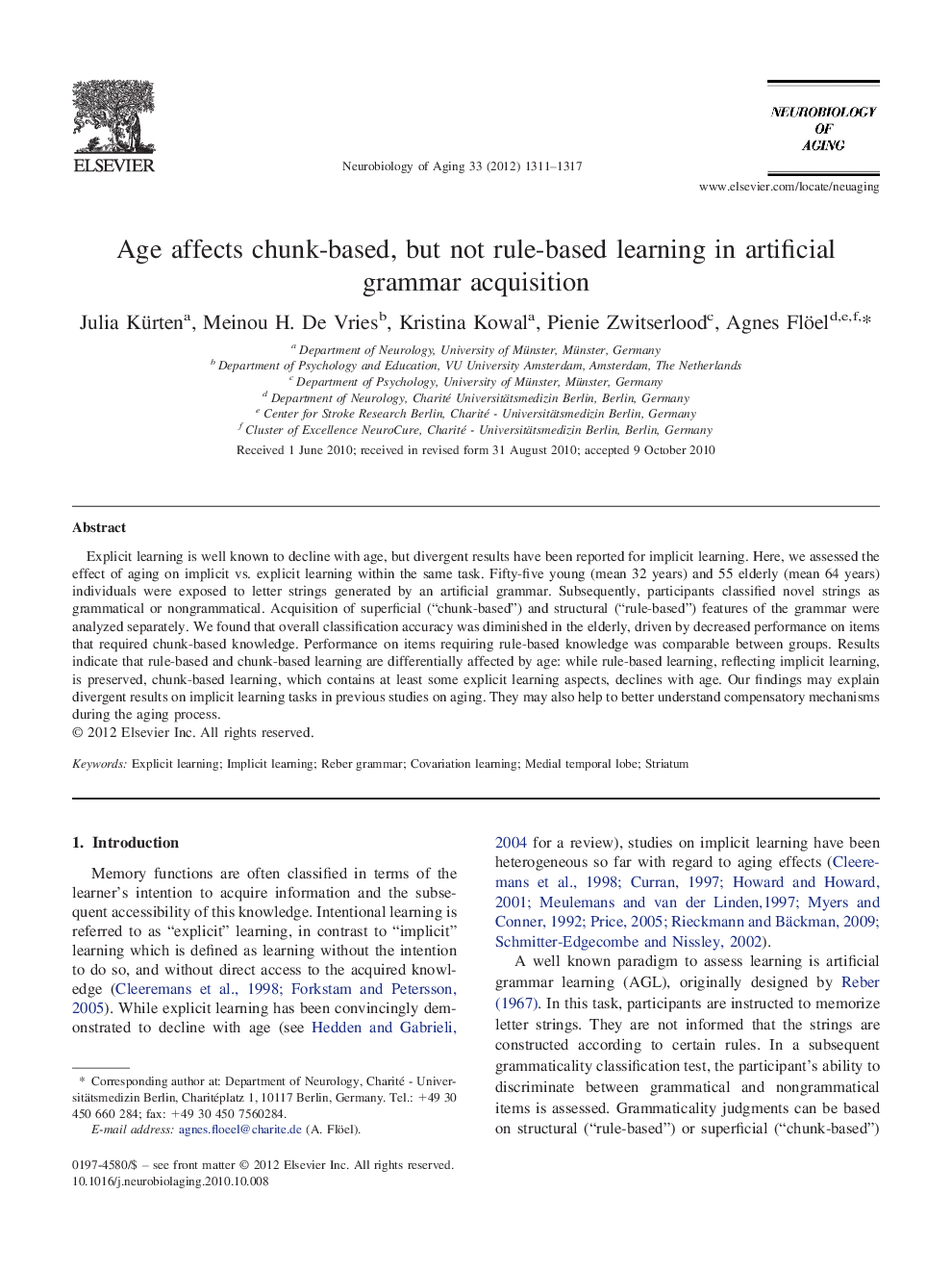| Article ID | Journal | Published Year | Pages | File Type |
|---|---|---|---|---|
| 6808778 | Neurobiology of Aging | 2012 | 7 Pages |
Abstract
Explicit learning is well known to decline with age, but divergent results have been reported for implicit learning. Here, we assessed the effect of aging on implicit vs. explicit learning within the same task. Fifty-five young (mean 32 years) and 55 elderly (mean 64 years) individuals were exposed to letter strings generated by an artificial grammar. Subsequently, participants classified novel strings as grammatical or nongrammatical. Acquisition of superficial (“chunk-based”) and structural (“rule-based”) features of the grammar were analyzed separately. We found that overall classification accuracy was diminished in the elderly, driven by decreased performance on items that required chunk-based knowledge. Performance on items requiring rule-based knowledge was comparable between groups. Results indicate that rule-based and chunk-based learning are differentially affected by age: while rule-based learning, reflecting implicit learning, is preserved, chunk-based learning, which contains at least some explicit learning aspects, declines with age. Our findings may explain divergent results on implicit learning tasks in previous studies on aging. They may also help to better understand compensatory mechanisms during the aging process.
Related Topics
Life Sciences
Biochemistry, Genetics and Molecular Biology
Ageing
Authors
Julia Kürten, Meinou H. De Vries, Kristina Kowal, Pienie Zwitserlood, Agnes Flöel,
